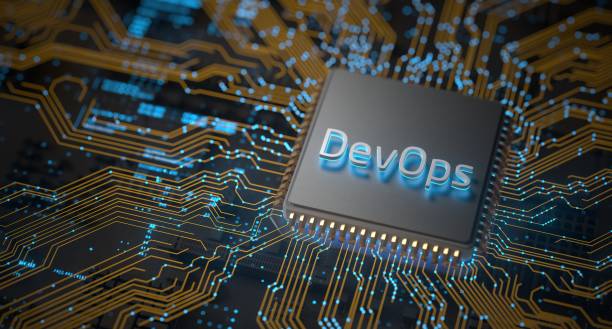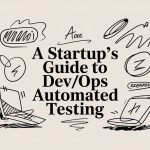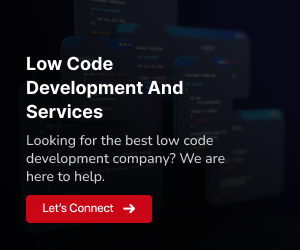Introduction
In the rapidly evolving realm of technology, it’s crucial to stay current with the latest trends, especially in the field of DevOps. This blog post is your ultimate guide to understanding, navigating, and harnessing the power of the latest DevOps trends in the USA. From the foundational concepts to the cutting-edge innovations, we’ll explore how DevOps has transformed over the past decade, the emerging trends in 2023, and how you can craft a strategic DevOps strategy to stay ahead of the curve.

Understanding DevOps Trends:
DevOps, short for Development and Operations, is a collaborative approach that merges software development and IT operations to streamline the software delivery process. Keeping up with the trends in this ever-evolving landscape is vital for both individuals and organizations striving for efficiency and excellence.
Navigating the Evolution
To thrive in the fast-paced tech landscape, comprehending DevOps trends is paramount. DevOps, the fusion of development and operations, powers seamless software delivery. Stay ahead by grasping pivotal DevOps trends.
DevOps trends, USA-focused, revolve around collaboration, speed, and quality. From siloed practices, DevOps emerged, revolutionizing workflows. Over the last decade, it evolved remarkably. Automated testing, continuous integration, and rapid delivery define modern DevOps. 2023’s DevOps trends, driven by AI, security, and Kubernetes, redefine norms. AI streamlines processes, while security prioritization curbs threats. Kubernetes orchestrates containers efficiently.

The Evolution of DevOps
In order to truly grasp the present state of DevOps, it is essential to comprehend its evolution. Over the years, DevOps has undergone significant changes that have transformed the way software development and operations are intertwined. What initially began as a pragmatic solution to bridge the gap between development and operations teams has now evolved into a cultural movement that drives efficiency, innovation, and seamless collaboration.
The initial objective of DevOps was to break down these barriers by fostering collaboration between development and operations teams. This was achieved by encouraging open communication and shared responsibilities. DevOps aimed to create a smoother and more efficient software delivery pipeline. Automation crucially played a role in achieving this, with the automation of repetitive tasks enabling faster and more reliable releases.
How DevOps Has Transformed in the Past Decade
One of the most significant shifts in DevOps over the past decade has been the rise of automation. Automation has become the cornerstone of modern DevOps practices, with tasks such as testing, deployment, and configuration management being automated to streamline the development pipeline. This shift has not only accelerated the delivery of software but has also led to increased reliability and reduced human errors.
Continuous Integration (CI) and Continuous Delivery (CD) have become fundamental principles in DevOps. CI emphasizes integrating code changes into a shared repository multiple times a day, ensuring the early detection of issues and enabling faster iterations. CD extends this concept by automating the deployment process, enabling frequent and reliable releases. Furthermore, the concept of infrastructure as code (IaC) has revolutionized infrastructure management. Treating infrastructure configurations as code permits version control, reproducibility, and the swift ability to spin up and tear down environments.
Emerging DevOps Trends in 2023

The DevOps landscape of 2023 is ablaze with transformative trends, reshaping the way organizations approach software delivery. As the year unfolds, the following eight trends are poised to redefine DevOps practices:
- AI-Infused DevOps: Artificial Intelligence and Machine Learning take center stage, injecting intelligence into DevOps processes. These technologies enhance predictive analytics, automate repetitive tasks, and optimize resource allocation, leading to unparalleled efficiency gains.
- Security-First DevOps: With cyber threats on the rise, DevSecOps gains prominence. Security is seamlessly integrated at every stage of development, ensuring robust protection of applications and data. This trend emphasizes proactive security measures that are essential in today’s digital landscape.
- Serverless Computing Revolution: The serverless architecture is on the rise, freeing development teams from infrastructure management burdens. This empowers them to concentrate solely on code development, resulting in faster iterations and reduced overhead.
- Kubernetes Pervasiveness: Kubernetes continues its dominance as the go-to container orchestration platform. Its widespread adoption enables organizations to efficiently manage and scale containerized applications, fostering agility and streamlined deployment.
- Multi-Cloud Orchestration: Organizations are embracing multi-cloud strategies, leading to a surge in multi-cloud orchestration tools. DevOps practitioners are now equipped to manage diverse cloud environments seamlessly, optimizing resource utilization and avoiding vendor lock-in.
- Edge DevOps Expansion: Edge computing’s growth spurs the development of Edge DevOps practices. DevOps methodologies are adapted to cater to the unique challenges of edge environments, facilitating efficient processing of data closer to the source.
- GitOps Adoption: GitOps, a paradigm where Git repositories become the source of truth for infrastructure and application deployment, gains traction. This approach enhances transparency, traceability, and version control in DevOps workflows.
- MLOps Integration: The convergence of DevOps and Machine Learning, known as MLOps, is on the rise. This trend optimizes the deployment and management of machine learning models, ensuring consistent and reliable performance.
The year 2023 holds a plethora of opportunities for DevOps enthusiasts to embrace innovation. By staying attuned to these trends and adapting their practices accordingly, organizations can remain competitive, agile, and primed for success in an ever-evolving tech landscape.
Also read: Top DevOps service companies in San Francisco, USA
The Future of DevOps

As we peer into the horizon of technological advancement, the future of DevOps promises to be an exciting and transformative journey. Originating as a response to the challenges of traditional software development practices, DevOps is poised to redefine how organizations approach software delivery, innovation, and collaboration.
- NoOps Paradigm: The concept of NoOps, where operations tasks are abstracted away through automation and AI, will continue to gain traction. This shift will enable development teams to focus solely on code creation, while infrastructure provisioning, scaling, and management are handled seamlessly by AI-driven systems.
- Quantum Computing and DevOps: The advent of quantum computing will usher in new challenges and opportunities for DevOps. Quantum computing’s unparalleled computational power will necessitate new strategies for testing, security, and optimization, further pushing the boundaries of DevOps innovation.
- Human-Centric DevOps: Amidst technological advancements, the human element will remain crucial. A human-centric DevOps approach will emphasize collaboration, communication, and empathy. Cross-functional teams will thrive in an environment that promotes creativity and diversity of thought.
- Sustainability and Green DevOps: Environmental consciousness will extend to DevOps practices. Green DevOps will prioritize sustainable resource usage, energy efficiency, and minimal environmental impact in software development and deployment.
Exploring DevOps Trends of 2023
As we delve into 2023, the DevOps landscape is evolving at an exhilarating pace. Several transformative trends are poised to shape the way organizations approach software development and operations. Let’s explore these trends and their implications:

1. AI-Driven DevOps Automation:
Artificial Intelligence and Machine Learning are becoming integral to DevOps processes. AI-driven automation enhances predictive analytics, enabling proactive issue detection and resolution. Tasks such as automating code review, testing, and incident response can reduce manual intervention and accelerate delivery cycles.
2. Security-First DevOps (DevSecOps):
With the escalating frequency of cyber threats, security is no longer an afterthought but a fundamental component of DevOps. DevSecOps integrates security practices throughout the development pipeline, embedding checks and measures to identify vulnerabilities early. This trend ensures that applications are secure by design.
3. Serverless DevOps:
Serverless computing is gaining momentum, freeing developers from managing infrastructure. In a serverless architecture, developers focus solely on code, while the cloud provider handles scaling and resource management. This leads to increased efficiency, reduced operational overhead, and quicker time-to-market.
4. Kubernetes for Container Orchestration:
Kubernetes continues to be a game-changer for container orchestration. Its wide adoption allows organizations to manage and deploy containerized applications efficiently. Kubernetes provides scalability, portability, and automation, facilitating seamless deployment across different environments.
5. Continuous Intelligence:
Continuous Intelligence combines real-time data analysis with DevOps practices. It enables data-driven decision-making by providing insights into application performance, user behavior, and system health. This trend empowers teams to identify and address issues promptly, enhancing overall quality.
Crafting a Strategic DevOps Strategy for 2023
To harness the power of emerging DevOps trends in 2023, organizations need a well-defined and strategic approach. Here are key steps to crafting a successful DevOps strategy:
- Assessment and Gap Analysis: Begin by evaluating your current DevOps practices. Identify bottlenecks, inefficiencies, and areas for improvement in your software delivery pipeline. Identifying the gaps that require addressing to align with the latest trends.
- Skill Development and Training: Invest in upskilling your team. Equip them with the knowledge and expertise required to integrate AI and security practices into the DevOps workflow. Training programs, workshops, and furthermore certifications can empower your team to embrace new technologies effectively.
- Tool Evaluation and Adoption: Explore AI-driven tools and security solutions that complement your DevOps goals. AI-powered testing frameworks, security scanning tools, and automation platforms can enhance efficiency and reliability. Choose tools that align with your organization’s needs and also long-term objectives.
- Embrace a Culture of Continuous Learning: Cultivate an environment that places value on ongoing education. Motivate your team to stay updated with the latest industry developments, best practices, and DevOps trends. Arrange knowledge-sharing sessions, workshops, and hackathons to facilitate continuous learning furthermore.
- Collaboration and Communication: Enhance collaboration between cross-functional teams. Facilitate open communication channels to ensure alignment on goals, priorities, and strategies. A culture of transparent communication can lead to smoother collaboration and also faster problem resolution.
Expert Insights
The future holds even more: AI-ML integration and robust security protocols. Being adaptable is key. Harness DevOps trends by assessing, upskilling, and also embracing AI-powered tools. Continuous learning is non-negotiable.
Stay competitive by navigating DevOps trends wisely. Propel your tech journey forward with insights from our experts. Revolutionize your approach, ride the tech wave, and thrive in the ever-evolving DevOps realm. The future holds even more exciting developments, including the integration of AI and machine learning and a heightened focus on security protocols. To stay ahead, adaptability is key. Embracing DevOps trends involves assessing your current practices, upskilling your team, and leveraging AI-powered tools. Continuous learning is no longer a choice but a necessity.Navigate the dynamic DevOps landscape with confidence. Gain expert insights to revolutionize your approach, embrace the evolving trends, and position yourself for success in the ever-advancing world of DevOps.
Also read: The Role of ML and AI in DevOps Transformation: Guide for USA
Conclusion
Staying abreast of DevOps trends is no longer a luxury but a necessity. The evolution of DevOps, the trends shaping 2023, and the potential innovations on the horizon showcase the dynamic nature of this field. By crafting a strategic DevOps strategy and embracing AI and security, individuals and organizations can furthermore harness the true potential of DevOps and lead the way in efficient software delivery. Remember, in the rapidly evolving world of technology, staying ahead of the curve is the key to success.


















